#35. Waterspouts
You might think this picture is showing a tornado, and you wouldn't be entirely wrong. This sea phenomenon is known as waterspout, and it is a mixture of air and mist that forms on bodies of water and spins around.
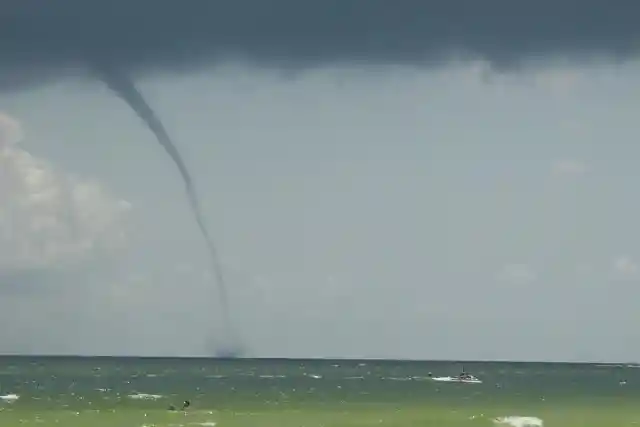
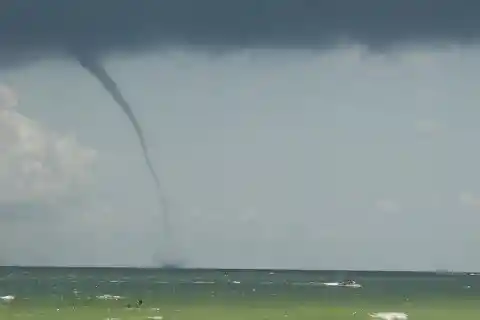
There are two types: fair weather and tornadic waterspouts. The former form on the surface of the water and are connected to clouds. Tornadic ones are actually more dangerous because they originate during thunderstorms, so it is best to stay away from them as much as possible.
#34. Fog Tsunami
Tsunamis are amongst the scariest natural phenomena that could possibly happen. We have seen them destroy entire villages and ruin people's lives, but this kind of Tsunami that we will be talking about is very different - in fact, it's completely harmless.
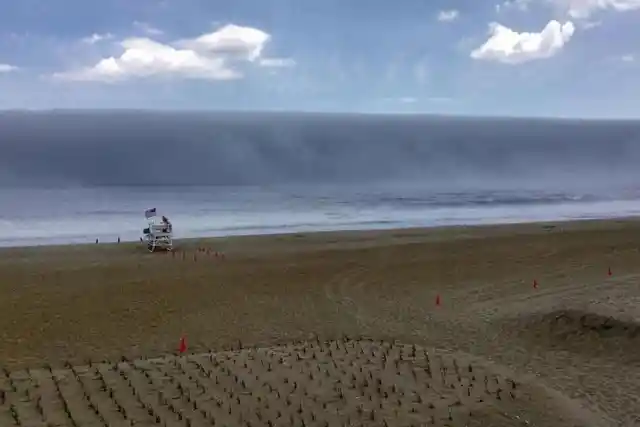
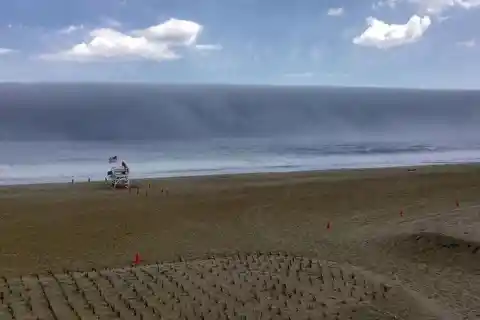
Fog Tsunamis earned their name because they look like an actual tsunami, but they are actually just a really big amount of fog on the surface of the ocean. They tend to appear when the warm air and the cool water merge to the point of creating this massive amount of fog.
#33. St. Elmo's Fire
Thunderstorms in the ocean can be a terrifying thing for sailors. However, in the middle of such a scary event, a beautiful thing happens sometimes. This phenomenon is known as St. Elmo's Fire, named in honor of St. Erasmus of Formia who is a patron saint of sailors.
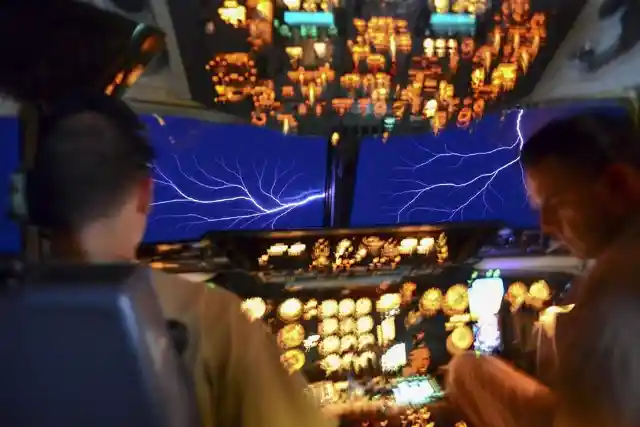
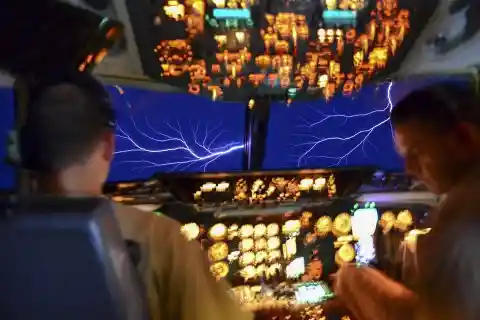
St. Elmo's Fire is a discharge of atmospheric electricity that bursts in many colors during a thunderstorm. This discharge is caused by a high electrical field clashing with a sharp object, such as a ship's mast. These electrical fields have a large number of electrons that glow in multiple colors.
#32. Sea Foam
If you've ever been to a beach, it is very likely that you've seen sea foam. While it looks pretty cool and it is harmless, it is actually not supposed to happen, at least not as often as it ends up happening. Basically, it occurs when the waters are disturbed.
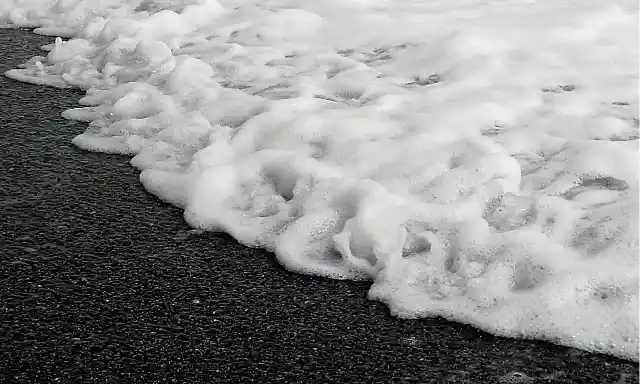
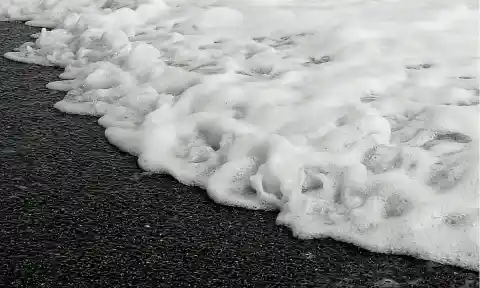
This disturbance can happen naturally, by the wind and high tides, for example, but it can also happen because of excessive human intervention in the ocean, for example, by throwing waste or sailing. The harsh movements in the water causes air bubbles to be trapped, transforming them into foam.
#31. Red Tide
Red tide is more common than people think and if you ever see it, stay away from the water. It is actually extremely dangerous to most life forms, and many animals are killed when this happens. Humans exposed to the gases released by it also suffer from certain health problems .
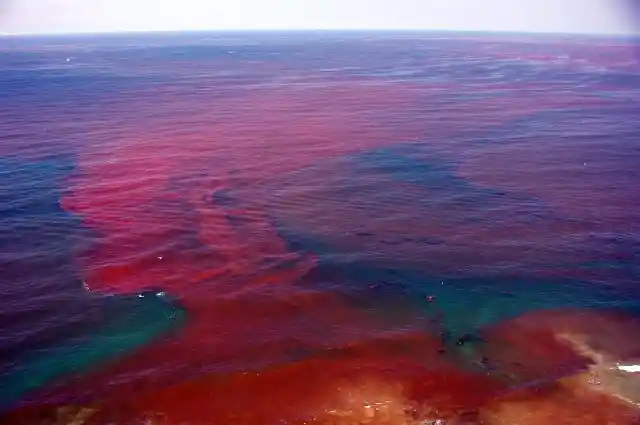
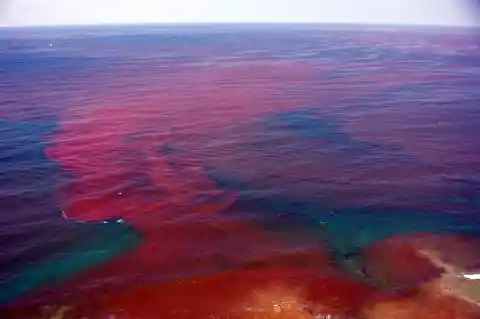
As scary as it sounds, there is a perfectly reasonable and simple explanation for this phenomenon. This occurs when algae rapidly grows to the point of dyeing the water red. The red color comes from the nutrients released by the algae, which are very toxic, as we've said before.
#30. Brinicles
Brinicles are natural phenomena that only occur in polar oceans. You've probably heard of icicles and seen them many times if you live in a cold climate, right? Well, brinicles are pretty much the same, only that they appear underwater.
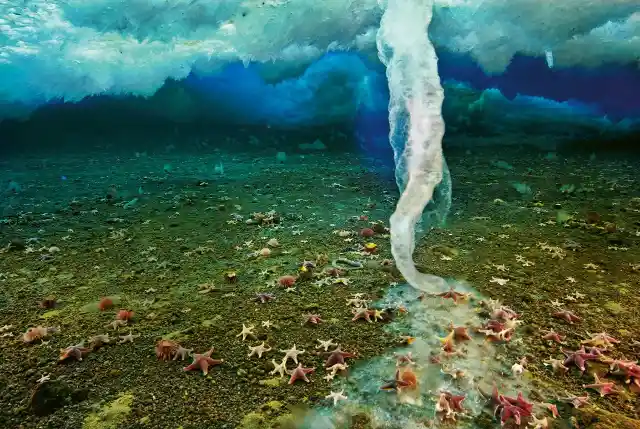
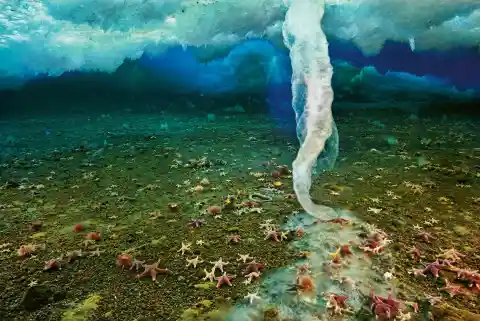
Brinicles are formed when the surface of the ocean is frozen and the salt in the water concentrates in the ice. After some time, the salt finds its way underwater but because it is cold, it slowly freezes at the bottom of the ocean.
#29. Green Flash
It is commonly known that strange lights are seen over the ocean from time to time, but nothing compares tot he green flash. This flash of green light actually happens twice a day, but it is so quick that if you see it, you might think you just got something in your eye.
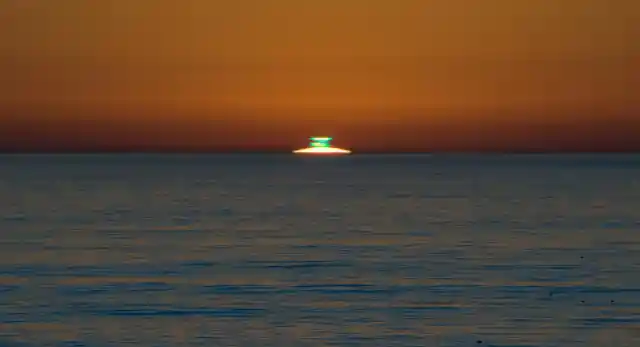
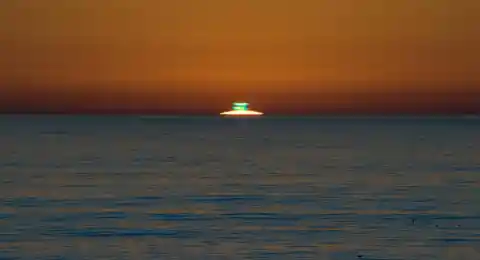
The truth is that this flash of green light is very much real, and it occurs due to the atmosphere of the Earth as it rotates, and the sun reflects in a prismatic effect. Sunlight reflects into multiple colors that can only be seen by the human eye as one big green flash.
#28. Steaming Black Sea
The Black Sea has always had a bad reputation. Back in ancient times, people were scared of the Black Sea because it was extremely difficult to navigate, and very little creatures live in it because of its high levels of sulfur. In fact, only bacteria inhabits its waters.
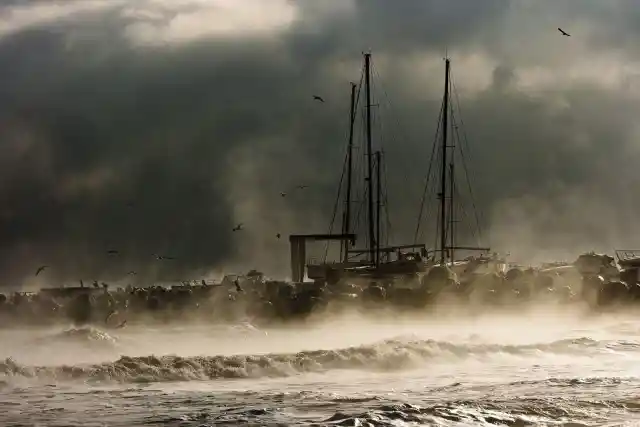
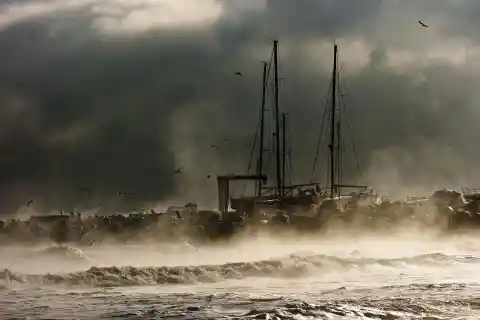
Another thing that has made the Black Sea a terrifying place is a mysterious smoke rising from its waters. The reason for this is the humidity of the water contrasting with the cold wind on the surface, which causes it to steam. While the explanation is reasonable, it still looks scary.
#27. Convergence of Baltic And North Seas
Many rivers and seas meet at different points, merging into one stream, and this is usually how water behaves. However, there is a rare phenomenon where two different streams of water somehow remain separate, which on first thought seems impossible.
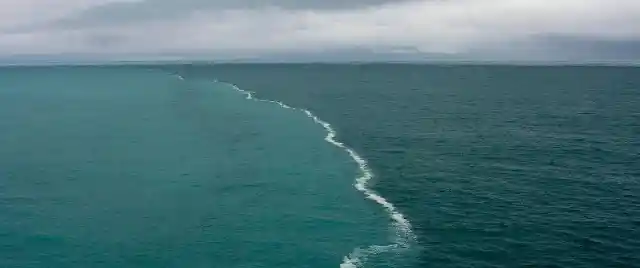
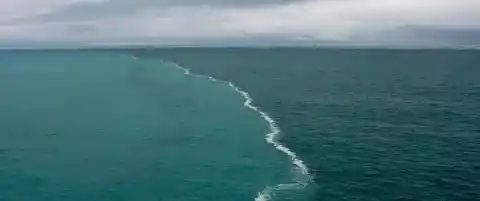
For example, the most notable occurrence of this phenomenon is the convergence of the Baltic and North Seas. The separation of the two seas can be clearly seen in the province of Skagen, Denmark, and it is caused by the very different densities of each sea. Despite the convergence, the two remain separate.
#26. Bioluminescence
This strange phenomenon looks incredibly beautiful, and those who have seen it in person could not believe their eyes. Bioluminescence is the name scientists have given to the strange occurrence of water just lighting up in bright lights, which shine even in the dark.
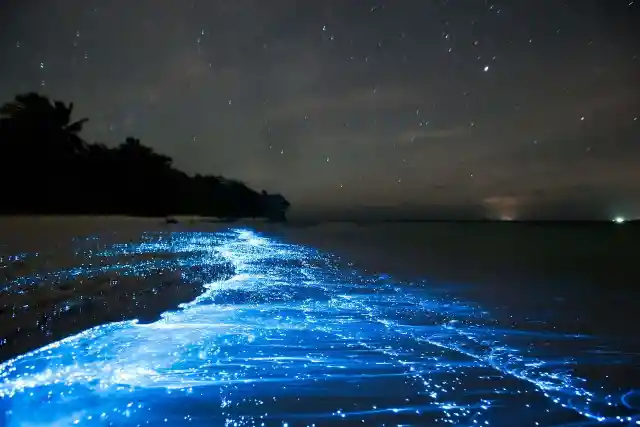
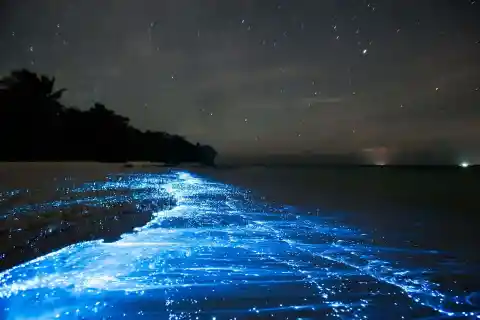
Interestingly enough, it is caused by tiny marine creatures as a defense mechanism. These creatures release chemicals that, when combined with oxygen, light up, creating this beautiful bioluminescence.
#25. Vanishing Submarines
Submarines seem to be pretty safe, right? Well, that's not entirely true. In fact, in 1968, a total of four submarines simply vanished, all from different countries.
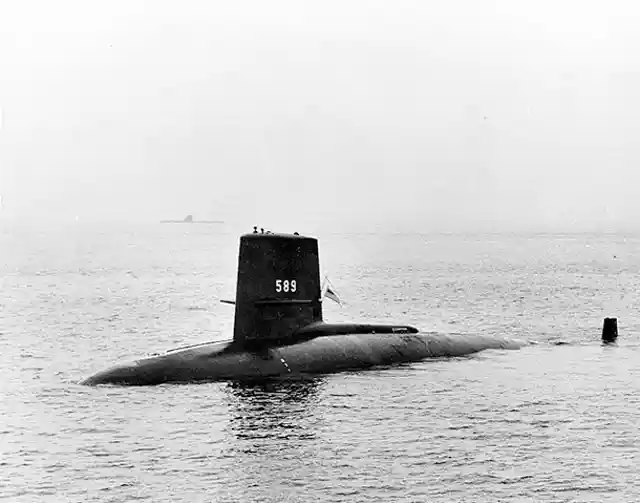
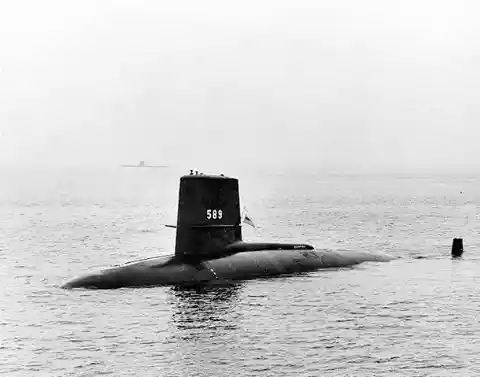
Nobody really knows what caused these disappearances. But many theories say they were the result of secret attacks from the Soviets. No traces were ever found.
#24. Shark Alpha
Sharks are probably some of the most feared animals in the ocean. Thus, it's hard to picture them running away from another predator. However, according to Australian scientists, a tagged great white shark was attacked and eaten by a mysterious predator, which still remains unknown.
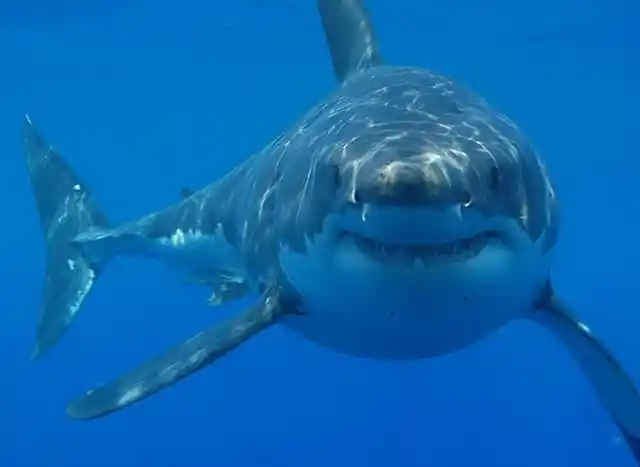

The 9-foot great white shark was a female and was named shark alpha. The tag recorded that the shark had plunged at high speed straight down, along with a drastic temperature change, which could only have occurred if the shark had been eaten. The tag appeared 4 months later about 2.5 miles away from where it was attached.
#23. Sycamore Knoll
The Sycamore Knoll lies 2,000 feet below the water's surface and it was discovered with Google Earth. It has the appearance of a structure that is supported on several pillars. Ufologists believe this is a huge discovery; however, geologists think otherwise.
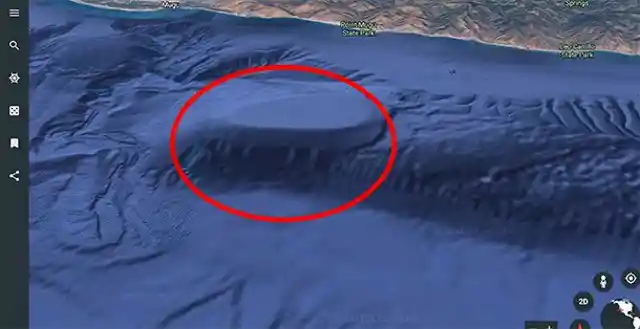
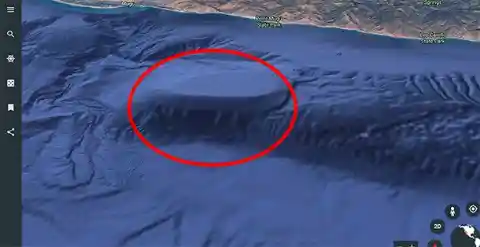
In short, they don't think the Sycamore Knoll is anything worth exploring. You can find the Sycamore Knoll yourself using Google Earth. Do you think it is an UFO?
#22. Gigantic Sunken Monument
Japanese divers were on the search for hammerhead sharks, but instead found something quite different. Beneath the water was a huge monument, its dimensions were 490 feet by 130 feet and 90 feet high.
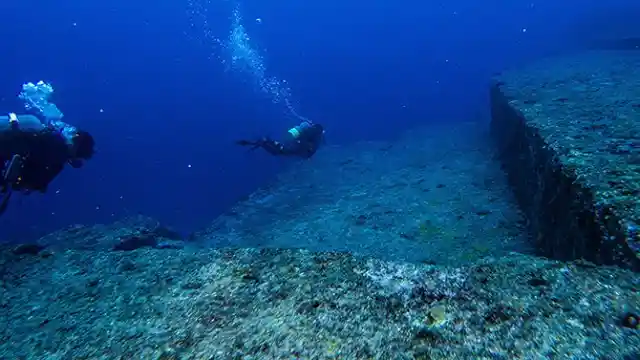
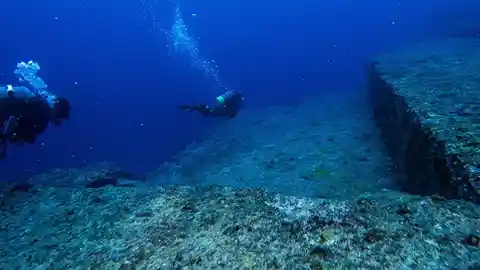
Ever since it was found, scholars argue about what its origins are. While some say it underwent a natural procedure, others believe it was man-made. For those that support the latter argument, they estimate that the monument is about 9,000 years old and that the reason it is submerged is due to tectonic activity.
#21. The Master Water Dragon
Lake Baikal is a unique lake in Russia and it is said to be the home to the Lusud-Khan, or the Master Water Dragon Early Chinese explorers claimed to have seen such creatures, and this is supported by modern-day fishermen.
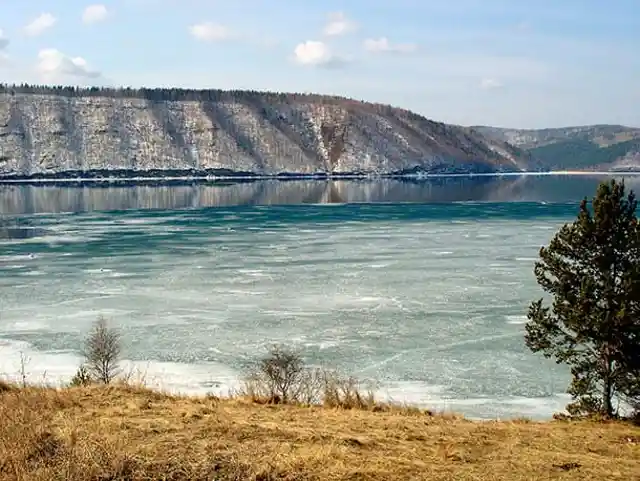
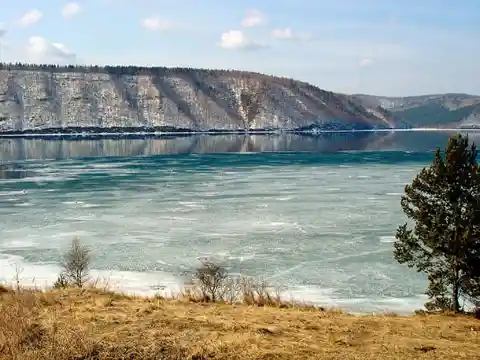
Lake Baikal is one of the oldest and deepest lakes in the world. To further support claims surrounding this sea monster, there is a stone slab from the 3rd and 9th century BCE that suggests the existence of such a creature.
#20. Milky Sea
For several years, sailors have detected patches of glowing water in the middle of the ocean, and they have called this The Milky Sea Phenomenon. They describe it as pale, milky waters that glow and stretch to a point the eye cannot see.
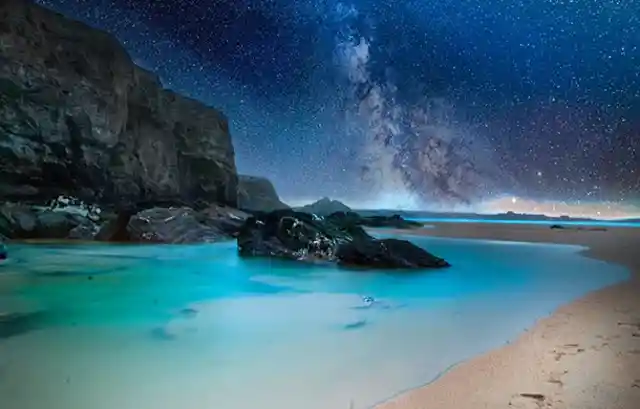
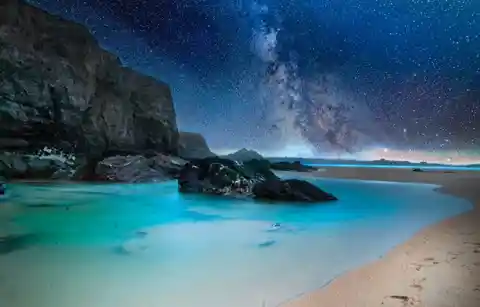
Scientists have concluded that what causes these glowing waters is bioluminescent bacterial action. This causes the water to turn into a milky blue. This phenomenon has been recorded and been in existence for over four centuries.
#19. Upsweep
Upsweep is what scientists have decided to name a mysterious sound that was discovered in 1991. It is reported that this sound cannot be produced by either whale nor ship vibrations.


Upsweep appears to be seasonal and has been recorded from one end of the Pacific to the other and tends to peak during spring and autumn. According to some hypotheses, it might be caused by seawater contacting lava.
#18. The Baltic Sea Anomaly
The Baltic Sea Anomaly was discovered by a Swedish diving team named Ocean X. The anomaly is based on a sonar image that suggests an object with an unnatural shape. Newspapers at the time said that it could have been a sunken UFO.
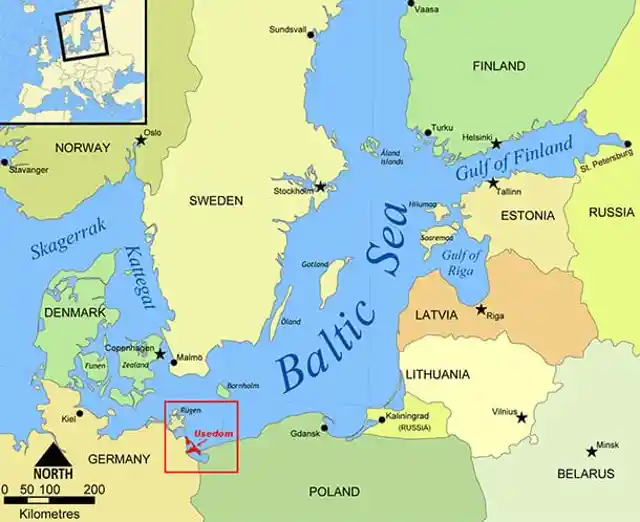
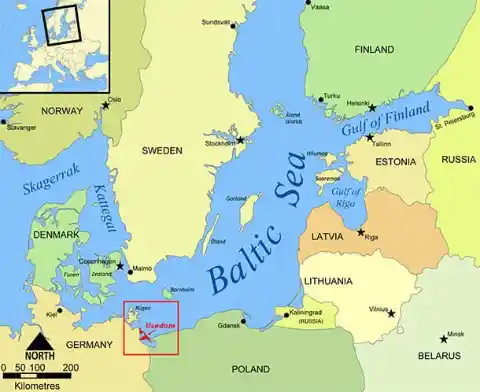
However, experts and scientists conclude that the Baltic Sea Anomaly is most likely a natural geological formation. Others criticize the Ocean X group saying that the group used a cheap and inaccurate sonar device and that because of that, the image was distorted.
#17. Heracleion's Lost City
The city of Thonis-Heracleion used to be just a legend. But 6.5 kilometers off the coast of Alexandria and after several years of research, experts have found the lost city of Heracleion. They've found several statues, ruins and the temple of the god Amun-Gereb, all under the sea.
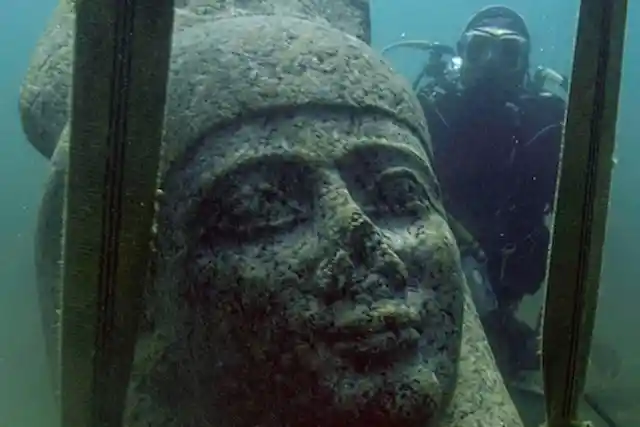
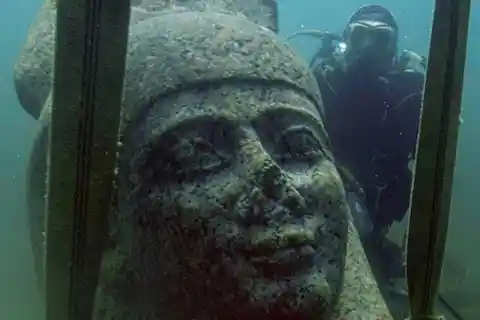
While nobody knows how it ended up underwater, the artifacts they discovered are made out of granite and diorite and these were found in a remarkable state. Owing to their well-preserved condition, they allow us to see what one of the great port cities of the world used to be like 2300 years ago.
#16. Submerged Circular Structure
Underneath the Sea of Galilee in Israel, a scientist accidentally found a mysterious, circular structure submerged 9 meters below the sea. Their discovery is huge; to give you an idea of just how big it is, it has a diameter greater than the length of an average airplane.
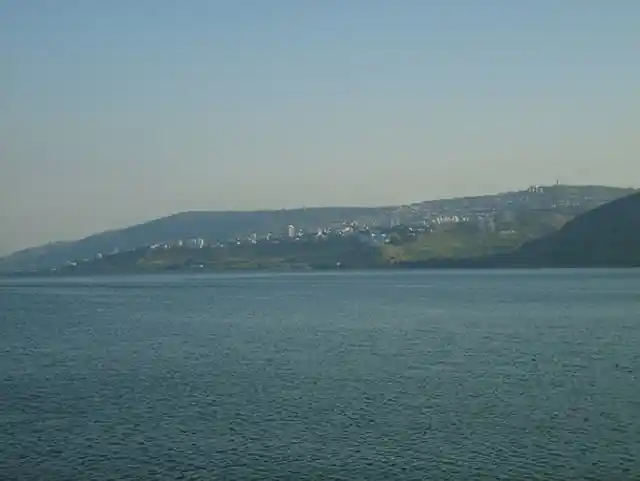
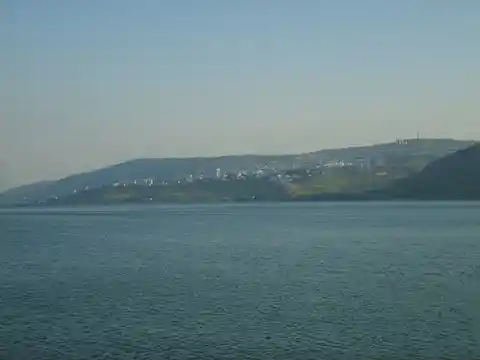
The structure is made out of basalt rocks shaped in a cone formation, and the whole structure measures 70 meters at its base. In terms of how tall it is, it is estimated that it reaches 10 meters tall, and if you were wondering how heavy this mysterious circle is, the closest approximation is 60,000 tons.
#15. Buried Lake Vostok
You probably never thought this could be possible. But under the Antarctic Ice lies a lake: Lake Vostok. It is said to be one of the largest subglacial lakes in our world. It used to be a surface lake on the east of Antarctica, but now it is buried under 2.7 miles of ice.
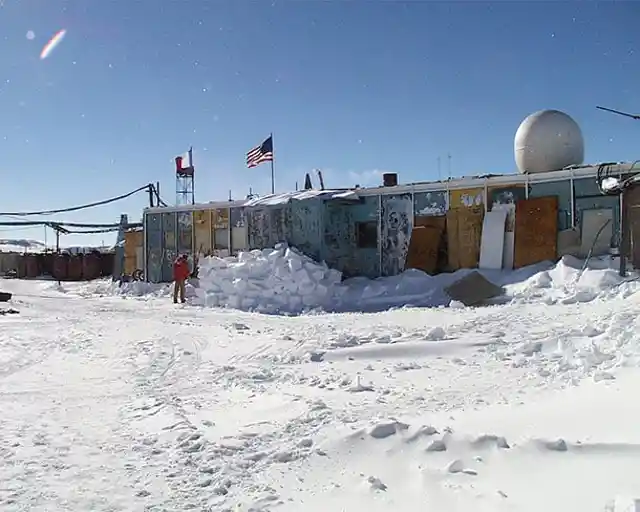
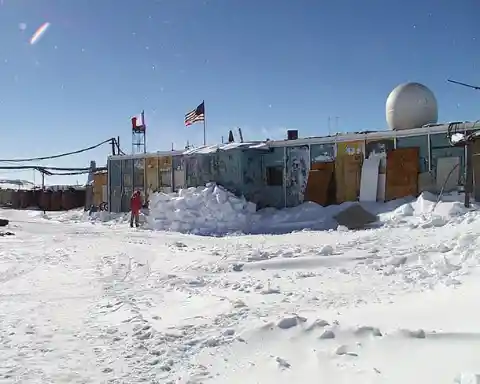
According to professionals, it is likely that it has been covered for 15 million years. Maybe you thought that under such conditions, there was no life in Lake Vostok, but analysis of life forms suggests that Lake Vostok has a unique ecosystem teeming with life.
#14. Structure In The Lake
You've probably realized at this point that lakes tend to be more mysterious than what they seem. That is also the case for Lake MacDonald, located in Ontario Canada. 12 meters below the surface of the crystalline water, you'll find a huge boulder sitting on top of several volleyball-sized stones.
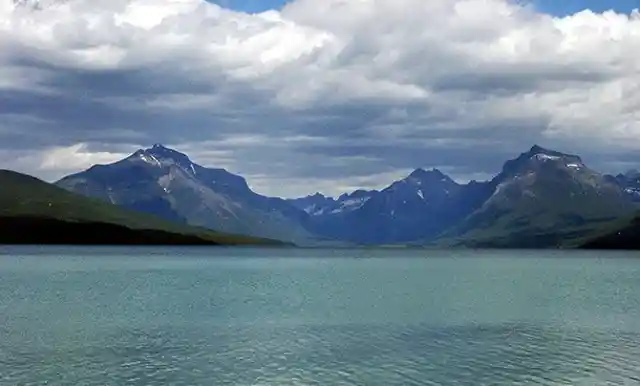
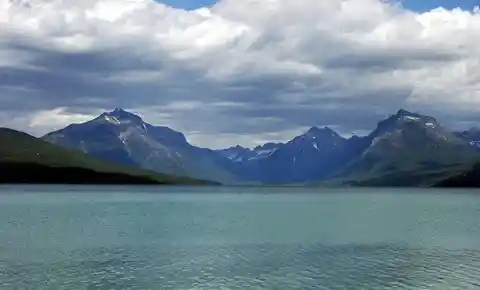
The mysterious ancient underwater structure is said to be about 1,000 pounds. In the beginning, geologists concluded that the boulder sitting on the stones had been formed naturally. However, upon deeper analysis, they changed their minds and proposed that instead, it was a man-made structure. By which civilization? Who knows!
#13. Submerged City
Just off the coast of Cuba, concealed in the beautiful waters of Cabo de San Antonio, an old city was found underwater, but not much is known about it.
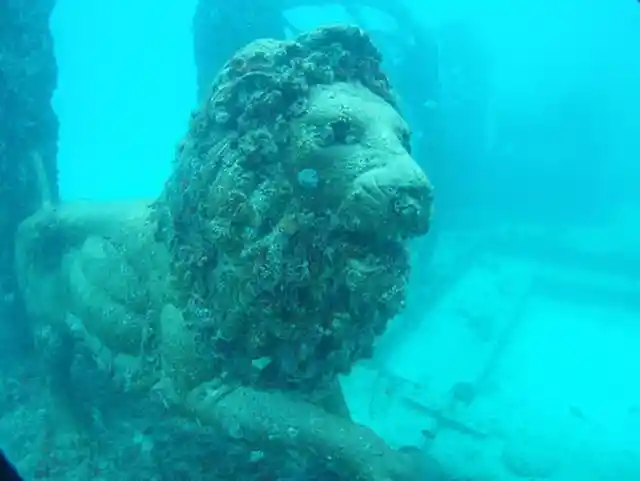
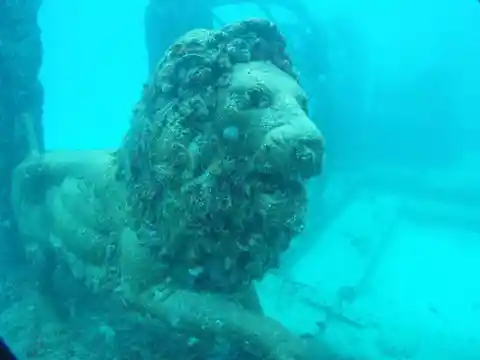
The findings lay about 2,500 feet below the surface and it is hypothesized that they are ruins from a previous Cuban city. The sonar images that scientists have gathered suggest that the stone structures resemble an urban complex that covers an area of about 2 square km.
#12. Stonehenge By The Lake
Underneath the surface of Lake Michigan, archaeologists found in 2007 a very curious rock formation when they were searching for shipwrecks. They found a boulder with prehistoric carvings and a series of stones that were arranged in a way that resembles Stonehenge.
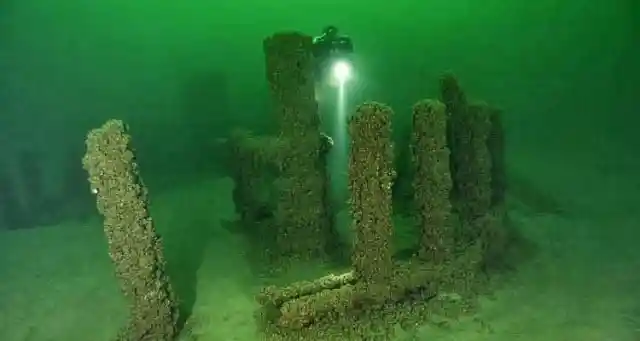
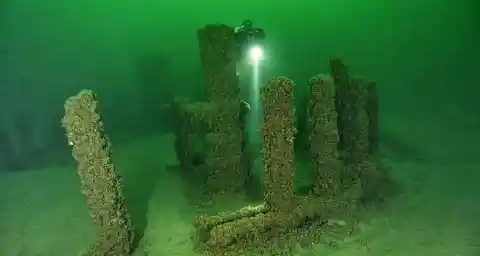
The most curious part is that the lake bed is actually empty, making the rock formation even more perplexing. The boulder that had the markings was the one that drew the most attention, for it had outlines that looked like a mastodon, a species of extinct mammoth.
#11. Underwater Whistle
Not that long ago, the American National Oceanic and Atmospheric Administration discovered what appears to be an underwater whistle. The whistle is said to be similar to volcanogenic sounds.
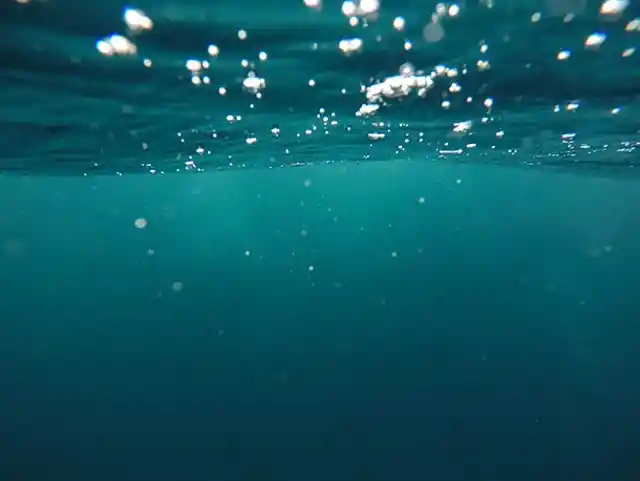
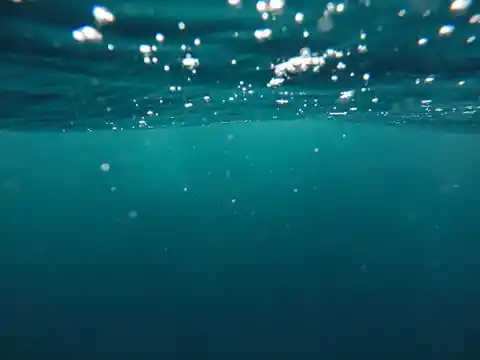
While the volcanogenic sounds have been identified in a volcanic arc located in the Pacific, this one is said to be unidentified because it was only recorded with one hydrophone. Professionals require three hydrophones in order to triangulate a precise location.
#10. Eerie Road
Bimini Road is another finding that leads us to believe that the lost civilization of Atlantis did exist. Off the coast of Bimini lies an ancient stone formation that resembles a path or a road to a potentially lost land.
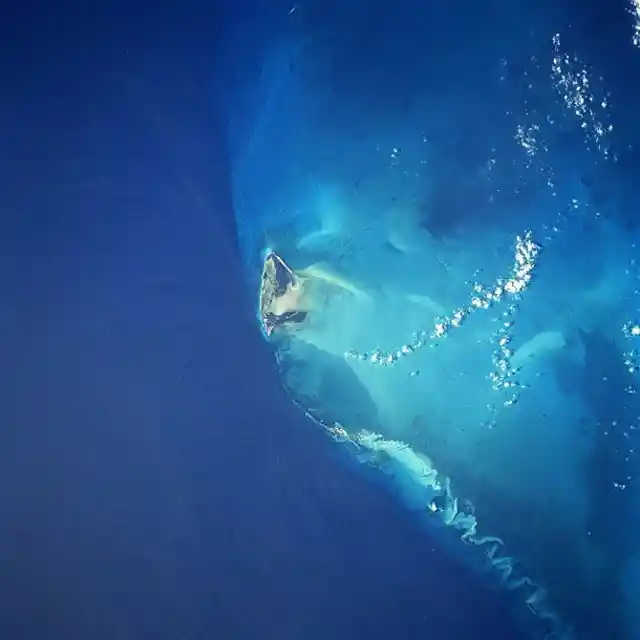
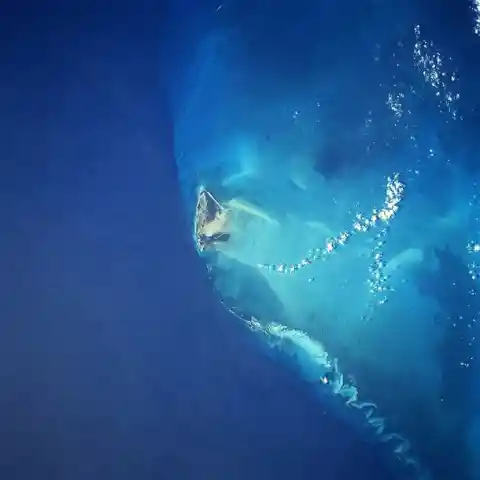
The huge, flat stones are known as the Bimini Road.These rocks are cut at right angles, just as if they were set to be placed in a straight line. The formation is as long as half a mile, and in the end, there is a stone that looks like a hook.
#9. Archaeological Wonders
It seems that we are always on the search for lost civilizations, and the findings at the Gulf of Khambat proves this. In 2002, scientists discovered archaeological remains that reportedly belong to a civilization that existed 9,000 years ago.


Since the artifacts that have been recovered were not done through a controlled archaeological excavation, some archaeologists argue that they cannot be tied specifically to the site. Given this argument, specialists say that the pieces of wood that have been recovered with this process don't have any significance, despite the fact that they date from 7500 B.C.
#8. Lost Trains
Have you ever wondered where the oldest trains in American history are? Well, some of them ended up at the bottom of the sea. Back in the '80s, Captain Paul Hepler was scanning New Jersey's ocean floor when he discovered something very fascinating.


The two rare locomotives are said to belong to the 1850s and they are currently laying under 90 feet of water. It's a mystery how these locomotives sunk because there are no records that register their loss.
#7. Large Staircase
A mysterious giant "staircase" was found on the Wilkes Island, in the frozen wastes of Antarctica. There is much dispute regarding its origins. Some even suggest that it could be an old Nazi base and the most imaginative say it is a UFO site.
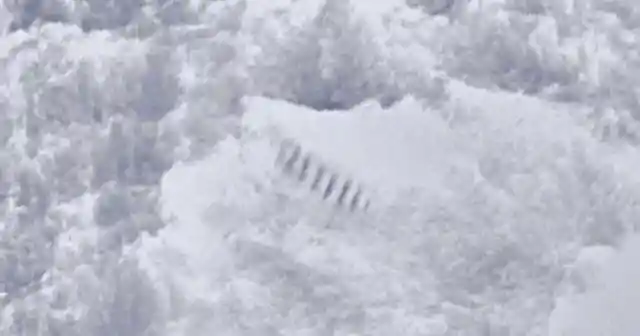
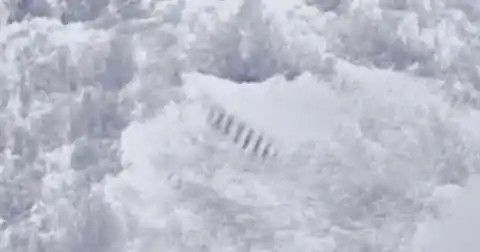
However, those that are more driven by reason, suggest that it was created by an impact crater. The shape was found on Google Earth in 2006 when NASA satellites detected gravitational changes, most likely related to the presence of a huge structure.
#6. Circular Objects
Also thanks to Google Earth, investigators found some interesting circular objects ust off the coast of Florida and Belize. These have been documented by archaeologists and scientists alike.


While we still don't know what exactly causes these shapes, many believe that they were used as ancient burial mounds. These underwater structures have been exceptionally well preserved. and it is estimated that they date back to around 8000 BC.
#5. Julia
One of the most mysterious noises ever recorded underwater was one that sounded like someone was cooing. Described as some sort of whine, researches heard this noise on March 1st, 1999, and they named it Julia.


It was a network of hydrophones that picked up this eerie sound. Scientists believe that what causes the whining of Julia is actually a block of ice. Researchers say that the hydrophones were probably picking up the noise of a large iceberg siding down into the seafloor.
#4. Seven Minute Sound
Also known as Slow Down, the seven-minute sound was recorded on May 19th, 1997. Scientists believe that the source of this sound is the Antarctic Peninsula, but they aren't sure.


If indeed that is the source of the noise, then researches believe that what causes this seven-minute noise is also an iceberg. More precisely, the drifting of an iceberg hitting the seafloor (much like Julia). The long sound would then be the screeching of the iceberg.
#3. Bizarre Purple Orb
The Ocean Exploration Trust researchers found a strange-looking purple orb that had never been seen before. The group first encountered this creature in California, deep down at the bottom of the Pacific.
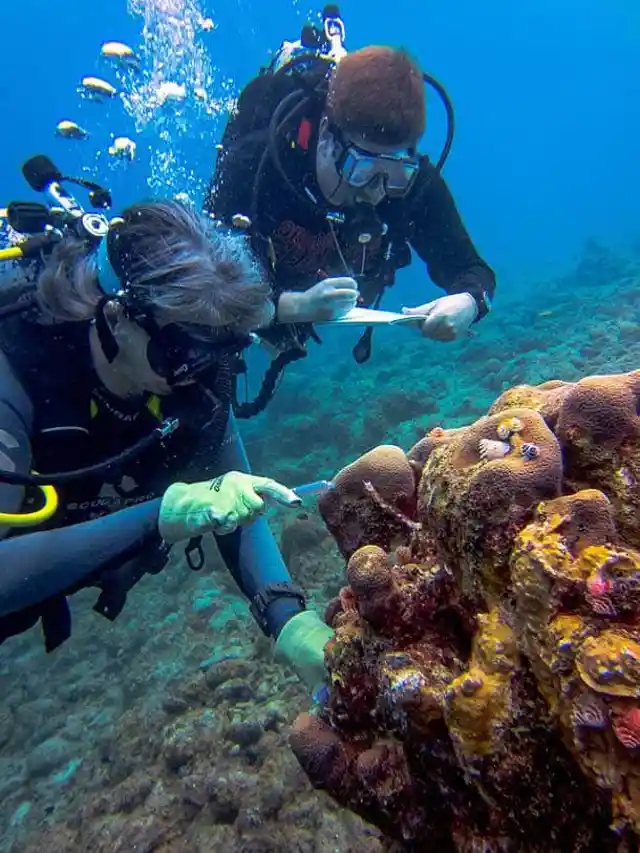
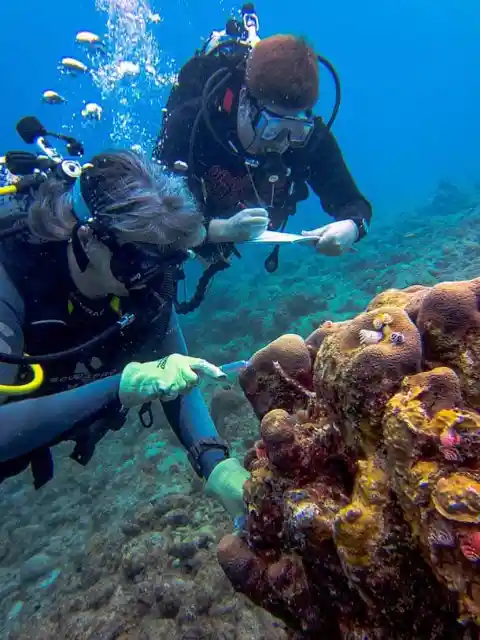
In the beginning, scientists joked that the finding was some sort of spider egg. Other researches suggested it could be a miniature octopus. However, upon further investigation, they now believe is that the purple orb is actually a velutinid, which is a type of snail.
#2. The Vanishing of Bermeja Island
What would you say if somebody told you that a whole island can be there one day, and then just disappear the next? Well, that is exactly what happened to the Island of Bermeja, which used to be easily spotted in the Gulf of Mexico.
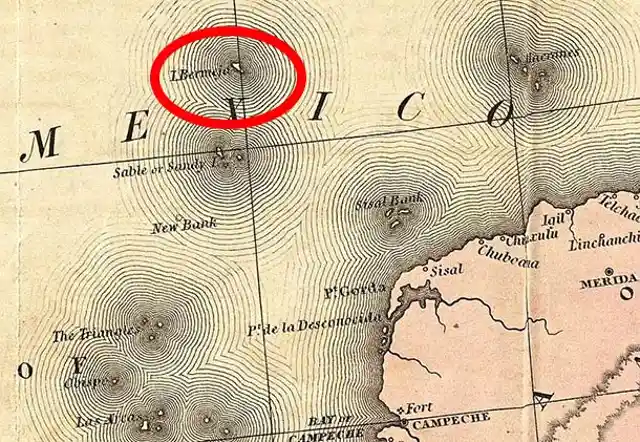
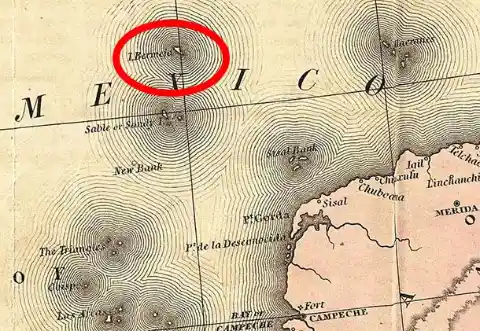
But for some mysterious reason, Bermeja is no longer by the Yucatan Peninsula, where it used to be. How does an island just disappear like that? Researchers have attempted to find this missing island that used to be in every old map, but it is as if it never even existed.
#1. Blue Whale Singing
Blue whales are known for singing and the reason they do so is to attract a mate. There is nothing strange in this given they have been doing it for as long as they've existed. However, things are changing.
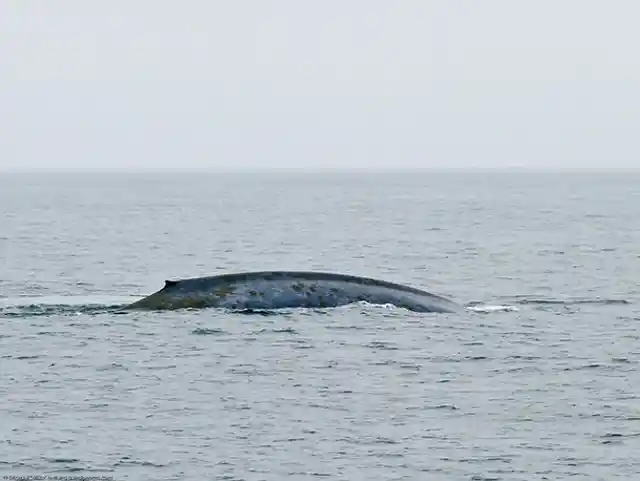
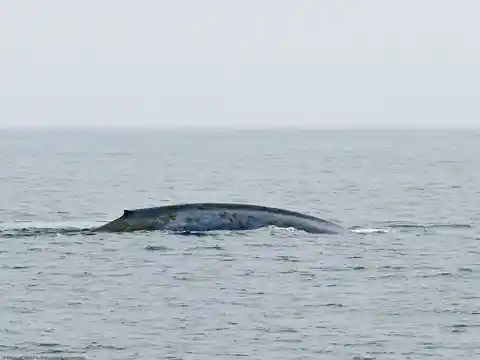
Mysteriously, over the past forty years, several blue whale populations have changed their songs. Researches have recorded them singing at deeper frequencies and nobody can explain what has caused this change. Some suggest the change is in response to some sort of population change and competition.